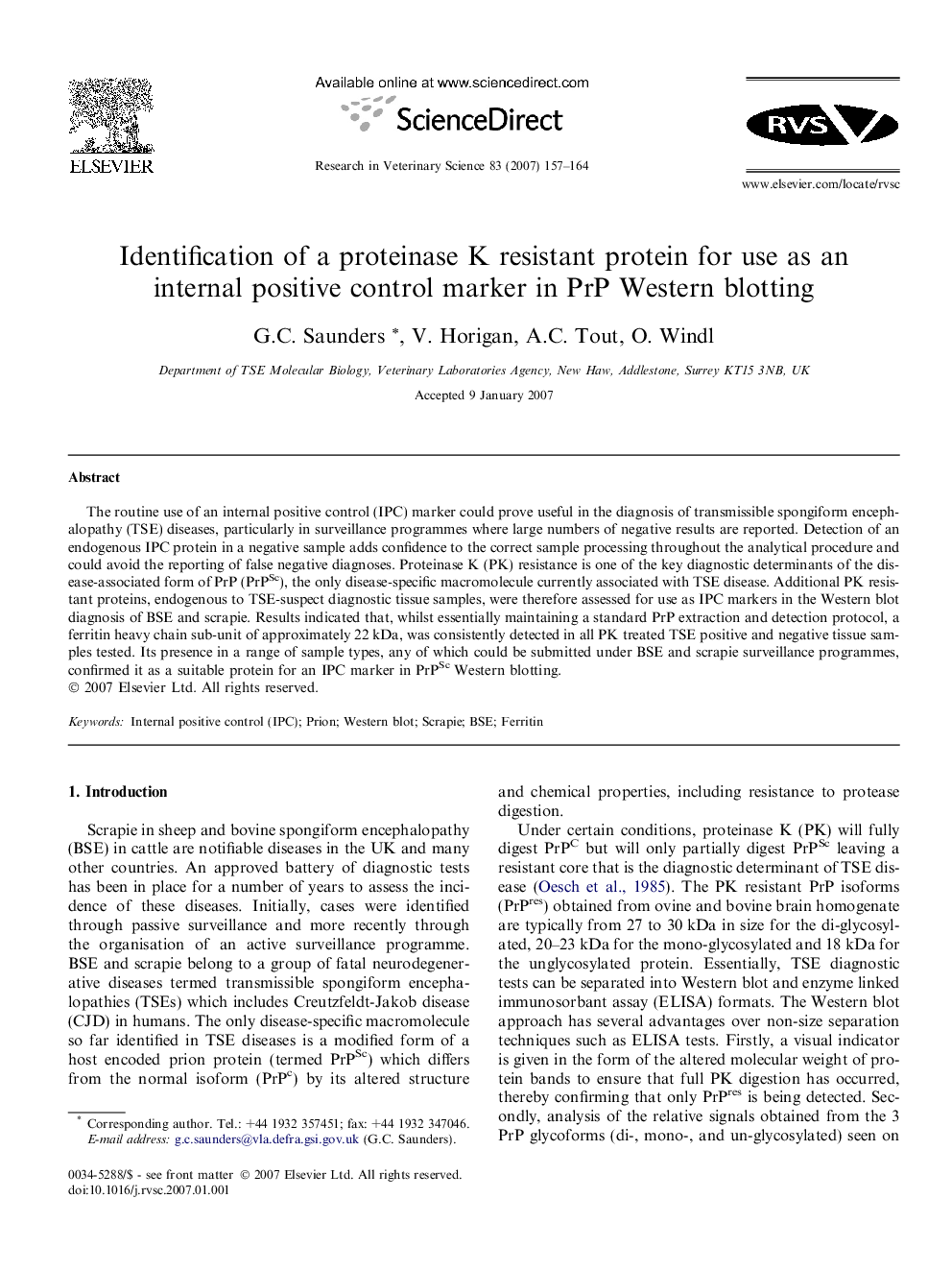| Article ID | Journal | Published Year | Pages | File Type |
|---|---|---|---|---|
| 2456304 | Research in Veterinary Science | 2007 | 8 Pages |
The routine use of an internal positive control (IPC) marker could prove useful in the diagnosis of transmissible spongiform encephalopathy (TSE) diseases, particularly in surveillance programmes where large numbers of negative results are reported. Detection of an endogenous IPC protein in a negative sample adds confidence to the correct sample processing throughout the analytical procedure and could avoid the reporting of false negative diagnoses. Proteinase K (PK) resistance is one of the key diagnostic determinants of the disease-associated form of PrP (PrPSc), the only disease-specific macromolecule currently associated with TSE disease. Additional PK resistant proteins, endogenous to TSE-suspect diagnostic tissue samples, were therefore assessed for use as IPC markers in the Western blot diagnosis of BSE and scrapie. Results indicated that, whilst essentially maintaining a standard PrP extraction and detection protocol, a ferritin heavy chain sub-unit of approximately 22 kDa, was consistently detected in all PK treated TSE positive and negative tissue samples tested. Its presence in a range of sample types, any of which could be submitted under BSE and scrapie surveillance programmes, confirmed it as a suitable protein for an IPC marker in PrPSc Western blotting.
